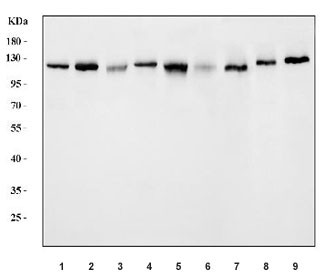Cookie preferences
This website uses cookies, which are necessary for the technical operation of the website and are always set. Other cookies, which increase the comfort when using this website, are used for direct advertising or to facilitate interaction with other websites and social networks, are only set with your consent.
Configuration
Technically required
These cookies are necessary for the basic functions of the shop.
"Allow all cookies" cookie
"Decline all cookies" cookie
CSRF token
Cookie preferences
Currency change
Customer-specific caching
FACT-Finder tracking
Individual prices
Selected shop
Session
Comfort functions
These cookies are used to make the shopping experience even more appealing, for example for the recognition of the visitor.
Note
Show the facebook fanpage in the right blod sidebar
Statistics & Tracking
Affiliate program
Conversion and usertracking via Google Tag Manager
Track device being used

| Item number | Size | Datasheet | Manual | SDS | Delivery time | Quantity | Price |
|---|---|---|---|---|---|---|---|
| NSJ-RQ7110 | 100 µg | - | - |
3 - 10 business days* |
755.00€
|
If you have any questions, please use our Contact Form.
You can also order by e-mail: info@biomol.com
Larger quantity required? Request bulk
You can also order by e-mail: info@biomol.com
Larger quantity required? Request bulk
0.5mg/ml if reconstituted with 0.2ml sterile DI water. Ubiquitin specific peptidase 10, also... more
Product information "Anti-USP10 / Ubiquitin carboxyl-terminal hydrolase 10"
0.5mg/ml if reconstituted with 0.2ml sterile DI water. Ubiquitin specific peptidase 10, also known as USP10, is an enzyme which in humans is encoded by the USP10 gene. Ubiquitin is a highly conserved protein that is covalently linked to other proteins to regulate their function and degradation. This gene encodes a member of the ubiquitin-specific protease family of cysteine proteases. The enzyme specifically cleaves ubiquitin from ubiquitin-conjugated protein substrates. The protein is found in the nucleus and cytoplasm. It functions as a co-factor of the DNA-bound androgen receptor complex, and is inhibited by a protein in the Ras-GTPase pathway. The human genome contains several pseudogenes similar to this gene. Several transcript variants, some protein-coding and others not protein-coding, have been found for this gene. Protein function: Hydrolase that can remove conjugated ubiquitin from target proteins such as p53/TP53, RPS2/us5, RPS3/us3, RPS10/eS10, BECN1, SNX3 and CFTR (PubMed:11439350, PubMed:18632802, PubMed:31981475). Acts as an essential regulator of p53/TP53 stability: in unstressed cells, specifically deubiquitinates p53/TP53 in the cytoplasm, leading to counteract MDM2 action and stabilize p53/TP53 (PubMed:20096447). Following DNA damage, translocates to the nucleus and deubiquitinates p53/TP53, leading to regulate the p53/TP53-dependent DNA damage response (PubMed:20096447). Component of a regulatory loop that controls autophagy and p53/TP53 levels: mediates deubiquitination of BECN1, a key regulator of autophagy, leading to stabilize the PIK3C3/VPS34-containing complexes (PubMed:21962518). In turn, PIK3C3/VPS34-containing complexes regulate USP10 stability, suggesting the existence of a regulatory system by which PIK3C3/VPS34-containing complexes regulate p53/TP53 protein levels via USP10 and USP13 (PubMed:21962518). Does not deubiquitinate MDM2 (PubMed:20096447). Plays a key role in 40S ribosome subunit recycling when a ribosome has stalled during translation: acts both by inhibiting formation of stress granules, which store stalled translation pre-initiation complexes, and mediating deubiquitination of 40S ribosome subunits (PubMed:27022092, PubMed:31981475, PubMed:34348161, PubMed:34469731). Acts as a negative regulator of stress granules formation by lowering G3BP1 and G3BP2 valence, thereby preventing G3BP1 and G3BP2 ability to undergo liquid- liquid phase separation (LLPS) and assembly of stress granules (PubMed:11439350, PubMed:27022092, PubMed:32302570). Promotes 40S ribosome subunit recycling following ribosome dissociation in response to ribosome stalling by mediating deubiquitination of 40S ribosomal proteins RPS2/us5, RPS3/us3 and RPS10/eS10, thereby preventing their degradation by the proteasome (PubMed:31981475, PubMed:34348161, PubMed:34469731). Part of a ribosome quality control that takes place when ribosomes have stalled during translation initiation (iRQC): USP10 acts by removing monoubiquitination of RPS2/us5 and RPS3/us3, promoting 40S ribosomal subunit recycling (PubMed:34469731). Deubiquitinates CFTR in early endosomes, enhancing its endocytic recycling (PubMed:19398555). Involved in a TANK-dependent negative feedback response to attenuate NF-kappa-B activation via deubiquitinating IKBKG or TRAF6 in response to interleukin-1-beta (IL1B) stimulation or upon DNA damage (PubMed:25861989). Deubiquitinates TBX21 leading to its stabilization (PubMed:24845384). Plays a negative role in the RLR signaling pathway upon RNA virus infection by blocking the RIGI- mediated MAVS activation. Mechanistically, removes the unanchored 'Lys- 63'-linked polyubiquitin chains of MAVS to inhibit its aggregation, essential for its activation (PubMed:37582970). [The UniProt Consortium]
| Keywords: | Anti-Ubiquitin thioesterase 10, Anti-Deubiquitinating enzyme 10, Anti-Ubiquitin carboxyl-terminal hydrolase 10, Anti-Ubiquitin-specific-processing protease 10, USP10 Antibody / Ubiquitin carboxyl-terminal hydrolase 10 |
| Supplier: | NSJ Bioreagents |
| Supplier-Nr: | RQ7110 |
Properties
| Application: | WB, Direct ELISA |
| Antibody Type: | Polyclonal |
| Conjugate: | No |
| Host: | Rabbit |
| Species reactivity: | human, mouse, rat |
| Immunogen: | Recombinant human protein (amino acids M1-L798) |
| Format: | Purified |
Database Information
| KEGG ID : | K11841 | Matching products |
| UniProt ID : | Q14694 | Matching products |
| Gene ID | GeneID 9100 | Matching products |
Handling & Safety
| Storage: | +4°C |
| Shipping: | +4°C (International: +4°C) |
Caution
Our products are for laboratory research use only: Not for administration to humans!
Our products are for laboratory research use only: Not for administration to humans!
Information about the product reference will follow.
more
You will get a certificate here
Viewed


